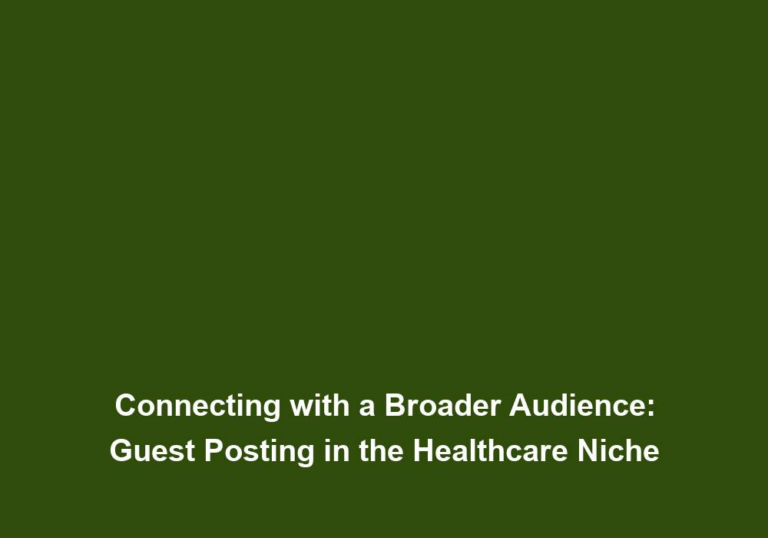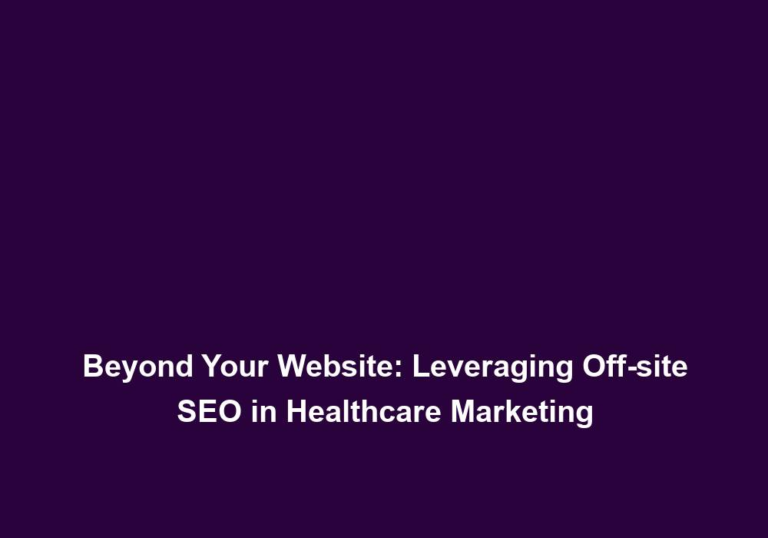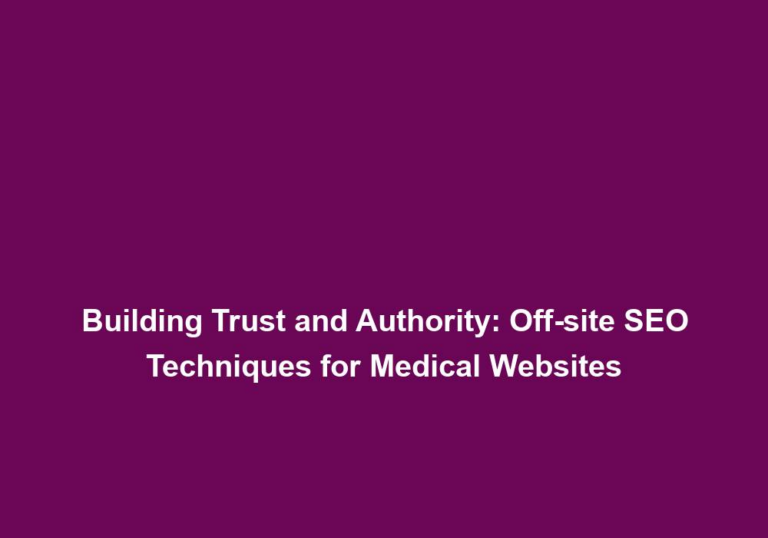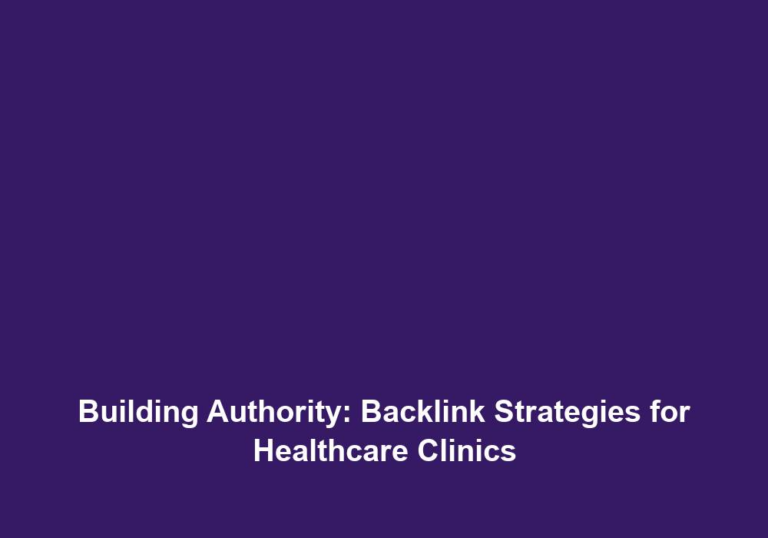Drive Organic Growth: Backlink Strategies for Modern Medical Websites
Introduction
In today’s digital age, having a strong online presence is crucial for any business, including medical websites. One of the most effective ways to boost your website’s visibility and credibility is through backlink strategies. Backlinks, also known as inbound links, are links from external websites that point back to your site. These backlinks act as a vote of confidence, signaling search engines that your website is trustworthy and authoritative. In this article, we will explore some powerful backlink strategies specifically tailored for modern medical websites.
Why Backlinks Matter for Medical Websites
Backlinks play a vital role in determining your website’s search engine rankings. When reputable websites in the medical field link back to your website, search engines view it as a positive endorsement. This endorsement helps search engines understand that your website provides valuable information and resources to users. As a result, your website is more likely to appear higher in search engine results pages (SERPs), driving organic traffic and improving your overall online visibility.
Additionally, backlinks help search engines discover and index your website more efficiently. When search engine crawlers encounter backlinks pointing to your site, they follow those links and index the content on your website. This indexing process helps search engines understand the relevance and authority of your website, further enhancing your search engine rankings.
Effective Backlink Strategies for Modern Medical Websites
Now that we understand the importance of backlinks, let’s explore some effective strategies to drive organic growth for modern medical websites:
1. Create High-Quality, Shareable Content
The foundation of any successful backlink strategy is creating high-quality, shareable content. Medical websites should focus on producing informative, well-researched, and authoritative content that addresses the needs and concerns of their target audience. By consistently publishing valuable content, you increase the likelihood of other reputable websites referencing and linking back to your content.
To make your content more shareable, consider incorporating visual elements such as infographics, images, and videos. These elements not only enhance the user experience but also make your content more likely to be shared across various platforms, generating more backlink opportunities. Additionally, you can break down your content into actionable steps or provide checklists to make it easier for readers to implement the information you provide.
Here are some additional tips for creating shareable content:
- Use catchy headlines that grab readers’ attention and make them want to click and share.
- Include statistics and data from reliable sources to support your claims and make your content more credible.
- Incorporate relevant keywords naturally throughout your content to improve its visibility in search engine results.
2. Collaborate with Influencers and Medical Professionals
Collaborating with influencers and medical professionals can significantly boost your backlink profile. Reach out to influential bloggers, doctors, researchers, and healthcare organizations in your niche to explore potential partnerships. You can offer to write guest posts for their websites, sharing your expertise while gaining exposure and backlinks in return.
When collaborating with influencers and medical professionals, ensure that the websites they are associated with are reputable and relevant to your field. Quality over quantity should be your priority when seeking backlinks, as search engines prioritize contextually relevant links from trusted sources. Make sure to include relevant keywords and anchor text in your guest posts to optimize the backlink value.
3. Leverage Medical Directories and Associations
Medical directories and professional associations are valuable resources for obtaining high-quality backlinks. Many medical directories allow you to create a profile for your practice or website, including a link back to your site. Ensure that you choose reputable directories and associations that are relevant to your specific medical field.
Additionally, consider joining medical forums and communities where professionals and users discuss various medical topics. By actively participating and providing valuable insights, you can establish yourself as an authoritative figure in your field. This can lead to other members linking back to your website, further enhancing your backlink profile.
Here are some medical directories and associations you can consider:
- American Medical Association (AMA)
- WebMD Physician Directory
- Healthgrades
- BetterDoctor
- Doximity
4. Share Your Expertise through Interviews and Podcasts
Participating in interviews and podcasts is a fantastic way to share your expertise while gaining valuable backlinks. Seek out relevant podcasts and interview opportunities in the medical field and offer to be a guest speaker. During these sessions, you can discuss trending medical topics, share insights, and establish yourself as an industry expert.
When participating in interviews and podcasts, ensure that the host provides a backlink to your website in the episode description or show notes. This not only drives traffic directly from the podcast platform but also improves your website’s authority in the eyes of search engines. Additionally, you can repurpose the interview or podcast content into written articles or blog posts on your website, providing internal backlinks and expanding on the information discussed.
5. Monitor and Disavow Toxic Backlinks
While building a strong backlink profile is essential, it’s equally important to monitor and disavow toxic or spammy backlinks. Some websites engage in unethical practices such as buying or spamming links, which can harm your website’s reputation and rankings.
Regularly monitor your backlink profile using tools like Google Search Console and third-party backlink analysis tools. Identify any suspicious or low-quality backlinks and disavow them through Google’s Disavow Tool. By disavowing toxic backlinks, you protect your website’s credibility and maintain a healthy backlink profile.
Conclusion
Backlink strategies are a powerful tool for driving organic growth and improving the visibility of modern medical websites. By creating high-quality, shareable content, collaborating with influencers and medical professionals, leveraging directories and associations, participating in interviews and podcasts, and monitoring your backlink profile, you can establish a strong online presence and boost your website’s authority and rankings in search engine results. Implement these strategies consistently, and you’ll be well on your way to driving organic growth for your medical website.






